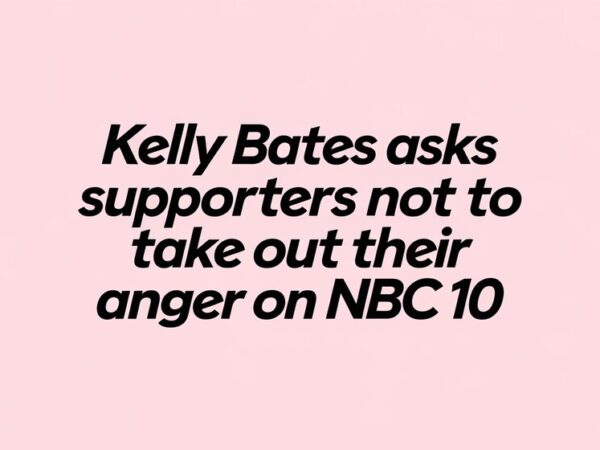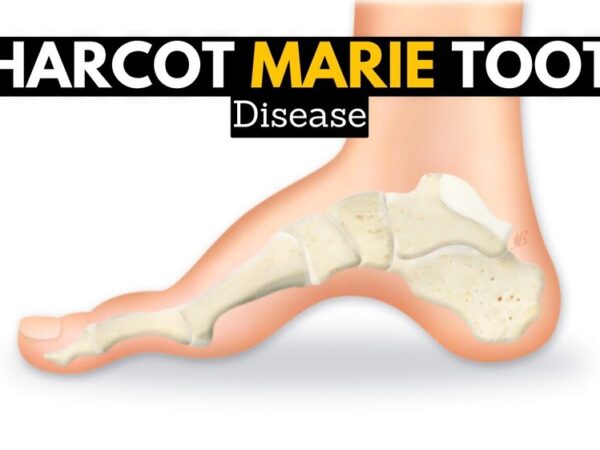Do Alec and Kaleb Get Paid for Commercials?

Alec Cabacungan and Kaleb-Wolf De Melo Torres are more than just familiar faces on television; they are symbols of hope, resilience, and advocacy for children with disabilities. As spokespeople for Shriners Hospitals for Children, they have captivated audiences nationwide with their inspiring stories and cheerful spirits. Their commercials have raised awareness for the causes they champion and have also sparked curiosity about whether they are compensated for their appearances. This article delves into the details of Alec and Kaleb’s compensation, the impact of their roles, and the broader implications of their work in media.
Understanding the Commercial Roles of Alec and Kaleb
Background
Alec Cabacungan and Kaleb-Wolf De Melo Torres have been patients at Shriners Hospitals for Children, receiving care for osteogenesis imperfecta. This rare genetic condition causes brittle bones. Alec, born in 2002, has been under the care of Shriners since he was just two months old. Over the years, he has undergone numerous surgeries and treatments to manage his condition. Despite these challenges, Alec has pursued his passion for sports broadcasting and has even studied the field at Northwestern University.
Kaleb, born in 2008, also suffers from osteogenesis imperfecta and has faced numerous surgeries and medical interventions. His condition has been more severe than Alec’s, requiring him to use a wheelchair for mobility. Despite the physical challenges, Kaleb’s positive attitude and infectious smile have made him a beloved figure in Shriners’ advertising campaigns.
Impact of Their Roles
Alec and Kaleb’s appearances in commercials for Shriners Hospitals for Children have done more than raise awareness; they have humanized the challenges faced by children with disabilities. These commercials have helped raise millions of dollars in donations, ensuring that Shriners can continue providing specialized care to children in need, regardless of their families’ ability to pay. The visibility that Alec and Kaleb have brought to these issues has also contributed to a broader understanding and acceptance of people with disabilities in society.
Their roles have significantly impacted public perceptions, challenging stereotypes and promoting the idea that children with disabilities are just as capable, talented, and deserving of opportunities as anyone else. Through their work, Alec and Kaleb have become role models for countless children facing similar challenges, showing them that they, too, can achieve their dreams.
Compensation Details
Base Pay
When it comes to compensation, Alec and Kaleb do indeed get paid for their commercial work. Their payments typically include a base fee for their participation in the commercials. This base pay covers their time, effort, and performance during the commercial shoots. The exact amount of this base pay is not publicly disclosed. Still, it is influenced by several factors, including the prominence of their roles in the commercials, the reach of the campaigns, and the overall budget allocated for the advertisements.
The commercials in which Alec and Kaleb appear often reach a national audience, which means their base pay is likely higher than that of actors in regional or local ads. Additionally, because they are not just actors but also ambassadors for the causes they represent, their compensation may reflect the importance of their roles in promoting Shriners Hospitals’ mission.
Residuals and Bonuses
In addition to base pay, Alec and Kaleb also earn residuals from their commercial work. Residuals are ongoing payments that are made each time a commercial is aired. Given the frequency with which Shriners Hospitals’ commercials are broadcast on national television, these residual payments can add up significantly over time. This structure ensures that Alec and Kaleb are compensated fairly for the continued use of their image and likeness in these advertisements.
Furthermore, Alec and Kaleb may receive bonuses for their exceptional performances or if the commercials achieve certain milestones, such as increased brand awareness or a significant donation boost. These bonuses, while not guaranteed, are a common practice in the advertising industry, particularly for high-profile campaigns like those involving Shriners Hospitals for Children.
The Role of Talent Agencies
Contract Negotiation
Talent agencies play a crucial role in managing child actors’ careers like Alec and Kaleb. These agencies are responsible for negotiating contracts that ensure fair compensation for their clients. For Alec and Kaleb, this includes defining the scope of their work, determining usage rights, and negotiating exclusivity clauses, which may restrict them from appearing in commercials for competing organizations or brands.
A well-negotiated contract is essential for protecting Alec and Kaleb’s interests, particularly in an industry where compensation structures can vary widely depending on the specifics of the commercial and the platforms on which it is aired. Talent agencies also ensure that Alec and Kaleb are paid promptly and that their earnings are managed to support their long-term financial security.
Financial Management and Support
In addition to contract negotiation, talent agencies provide valuable financial management services. These services include setting up savings accounts or trust funds to manage Alec and Kaleb’s earnings, ensuring they are financially secure as they transition into adulthood. Agencies also provide guidance on budgeting and financial planning, which is particularly important for child actors who may need to balance their earnings with the costs of education, healthcare, and other expenses.
Legal considerations are another critical aspect of the support provided by talent agencies. Contracts in the entertainment industry are often complex, and it is essential to ensure that Alec and Kaleb’s rights are protected, particularly regarding using their image and likeness in future campaigns. Agencies help navigate these legal complexities, providing peace of mind to Alec, Kaleb, and their families.
The Broader Impact Beyond Compensation
Representation and Diversity in Media
One of the most significant aspects of Alec and Kaleb’s commercial work is the representation they bring to the media. Their presence in national advertising campaigns highlights the importance of diversity and inclusion, showing that children with disabilities can be as effective, engaging, and inspiring as any other spokesperson. This representation is crucial in a media landscape that has historically underrepresented people with disabilities.
The impact of this representation extends beyond the commercials themselves. By seeing Alec and Kaleb on television, children with similar conditions can feel seen and understood, knowing their experiences are valid and they can achieve great things. For the general public, these commercials serve as a powerful reminder of the importance of inclusivity and the need to break down barriers for people with disabilities.
Career Advancement Opportunities
Alec and Kaleb’s success in commercials has opened up numerous opportunities for career advancement. Their visibility has led to offers for other roles in media, including television shows, movies, and additional advertising campaigns. As they continue to grow in their careers, they may explore new avenues, such as public speaking, social media influencing, or even creative pursuits like writing and directing.
Their commercial work has also helped them build valuable industry connections, which could prove beneficial as they navigate the entertainment world. These connections can lead to collaborations with other actors, directors, and producers, further expanding their opportunities and allowing them to continue advocating for the causes they believe in.
The Debate on Payment Equality
Industry Disparities
Despite the success Alec and Kaleb have achieved, the issue of payment equality in the advertising industry remains a significant concern. Factors such as age, disability, and gender can influence compensation, leading to disparities that need to be addressed. In many cases, actors with disabilities may face additional challenges in securing fair pay, particularly if a strong talent agency does not represent them.
The debate over payment equality is part of a broader conversation about fairness and representation in the entertainment industry. Advocates are pushing for greater transparency in compensation practices and more opportunities for actors with disabilities to be cast in high-profile roles.
Advocacy for Fair Compensation
Efforts to ensure fair compensation for actors like Alec and Kaleb are ongoing. Industry leaders are working to raise awareness about the importance of equitable pay, not just for child actors but for all actors who bring unique perspectives and experiences to their roles. This advocacy is essential for creating a more just and inclusive industry where all actors are valued for their contributions.
This advocacy is particularly important for Alec and Kaleb as they continue to break down barriers and challenge stereotypes. By speaking out about the importance of fair compensation, they can help pave the way for future generations of actors with disabilities.
Case Studies: Other Successful Commercial Actors
Lessons from Industry Veterans
Alec and Kaleb are not the first actors to succeed in the commercial world. Several other actors have leveraged their commercial success into broader media careers. For example, Stephanie Courtney, best known as “Flo” from Progressive Insurance commercials, has earned millions from her long-running role. Similarly, Jonathan Goldsmith, the “Most Interesting Man in the World” from Dos Equis commercials, became a cultural icon through his work.
These success stories offer valuable lessons for Alec and Kaleb. Consistency, versatility, and the ability to connect with audiences are key factors that have contributed to the success of these actors. By continuing to hone these skills, Alec and Kaleb can potentially follow similar paths to long-term success.
Application to Alec and Kaleb
For Alec and Kaleb, the future holds many possibilities. Their work in commercials has already set them on a path to success, and with the right opportunities, they can continue to build on this foundation. Whether they remain in the advertising world or explore other areas of the entertainment industry, their natural talent and charisma will serve them well.
The Future of Advertising and Alec and Kaleb’s Careers
Emerging Trends
The advertising industry constantly evolves, and new trends shape how actors like Alec and Kaleb are compensated. The rise of digital and social media advertising has created new avenues for exposure, allowing actors to reach wider audiences beyond traditional television commercials. This shift has also introduced different compensation models, including payments for online ads, social media engagements, and even partnerships with brands on platforms like YouTube, Instagram, and TikTok.
These changes mean that Alec and Kaleb’s roles in Shriners Hospitals for Children’s campaigns can extend beyond traditional TV spots. Digital platforms offer them additional opportunities to connect with audiences, advocate for causes they believe in, and potentially secure more lucrative deals. As social media plays a significant role in marketing strategies, Alec and Kaleb’s visibility on these platforms could increase sponsored content, brand partnerships, and more frequent appearances in digital advertisements.
Career Advancement Opportunities
Alec and Kaleb’s commercial work has already opened doors to new career opportunities in the entertainment industry. Their visibility has made them recognizable figures, not just as spokespeople for Shriners but as public personalities with the potential to expand into other areas of media. For instance, Alec’s passion for sports broadcasting and his experience in front of the camera could lead to opportunities in sports media, either as a commentator, host, or even as a content creator on platforms like YouTube.
Similarly, Kaleb’s charismatic presence and inspiration could open avenues in motivational speaking, advocacy work, or even roles in television and film. Their continued success in commercials and potential expansion into other media formats could help them build long-lasting careers in entertainment and advocacy, making them influential figures in both the disability community and the broader media landscape.
The Debate on Payment Equality
Despite their success, Alec and Kaleb’s journey also highlights ongoing challenges related to payment equality in the entertainment industry. Actors with disabilities, like Alec and Kaleb, often face disparities in compensation compared to their non-disabled peers. This inequality is influenced by various factors, including the visibility of their roles, the types of projects they are involved in, and societal perceptions of disability.
Advocates for equal pay in the entertainment industry argue that all actors, regardless of age, gender, race, or disability status, should receive fair compensation for their work. For Alec and Kaleb, this means ensuring that their contributions to Shriners Hospitals for Children’s campaigns are valued on par with other actors in similar roles. As they continue to gain recognition, their careers could catalyze broader discussions about fair pay and representation in media, potentially leading to more equitable practices across the industry.
Lessons from Industry Veterans
Alec and Kaleb are not alone in their success; they follow in the footsteps of other commercial actors who have turned their initial fame into enduring careers. For example, Stephanie Courtney, known as “Flo” from Progressive Insurance, has become a household name, earning millions from her long-running role. Similarly, Jonathan Goldsmith, famous as “The Most Interesting Man in the World” from Dos Equis commercials, leveraged his commercial success to become a cultural icon.
These examples illustrate the potential for Alec and Kaleb to parlay their success into long-term careers. The key to their continued success lies in their ability to remain relevant and adaptable as the industry changes. By diversifying their roles and exploring new opportunities, Alec and Kaleb can build on their current success and potentially achieve similar longevity in their careers.
The Future of Advertising and Alec and Kaleb’s Careers
As the advertising industry evolves, Alec and Kaleb’s future looks bright. The increasing focus on digital and social media platforms presents new opportunities for them to engage with audiences and build their brands. Performance-based compensation models, which reward actors based on the success of the campaigns they are involved in, could also become more common, providing Alec and Kaleb with additional income streams.
Moreover, the growing demand for authentic, relatable personalities in advertising could ensure that Alec and Kaleb remain in high demand for years. Their ability to connect with audiences personally and their inspiring stories make them ideal candidates for campaigns that prioritize genuine connections with consumers.
In the coming years, we may see Alec and Kaleb expanding their influence beyond traditional commercials. They could become involved in virtual reality (VR) or augmented reality (AR) campaigns, lend their voices to animated projects, or even explore opportunities in writing and producing content. The possibilities are endless, and with the right guidance and support, Alec and Kaleb have the potential to continue making a significant impact both in the advertising world and beyond.
Conclusion
Alec Cabacungan and Kaleb-Wolf De Melo Torres are remarkable individuals who have used their commercial appearances to advocate for a cause close to their hearts. Yes, they do get paid for their work in these commercials, and rightfully so. Their roles have not only brought financial rewards but also significant social impact, helping to shift public perceptions of disability and inspiring countless individuals around the world.
As the advertising industry evolves, Alec and Kaleb’s careers will likely continue growing. Their future looks promising, with opportunities in digital media, social platforms, and potentially new entertainment areas. They stand as examples of how commercial success can be leveraged to create meaningful change, both in the media landscape and society.
Do Read: Alexis Tomacruz Missing in Paris: Desperate Search Continues







